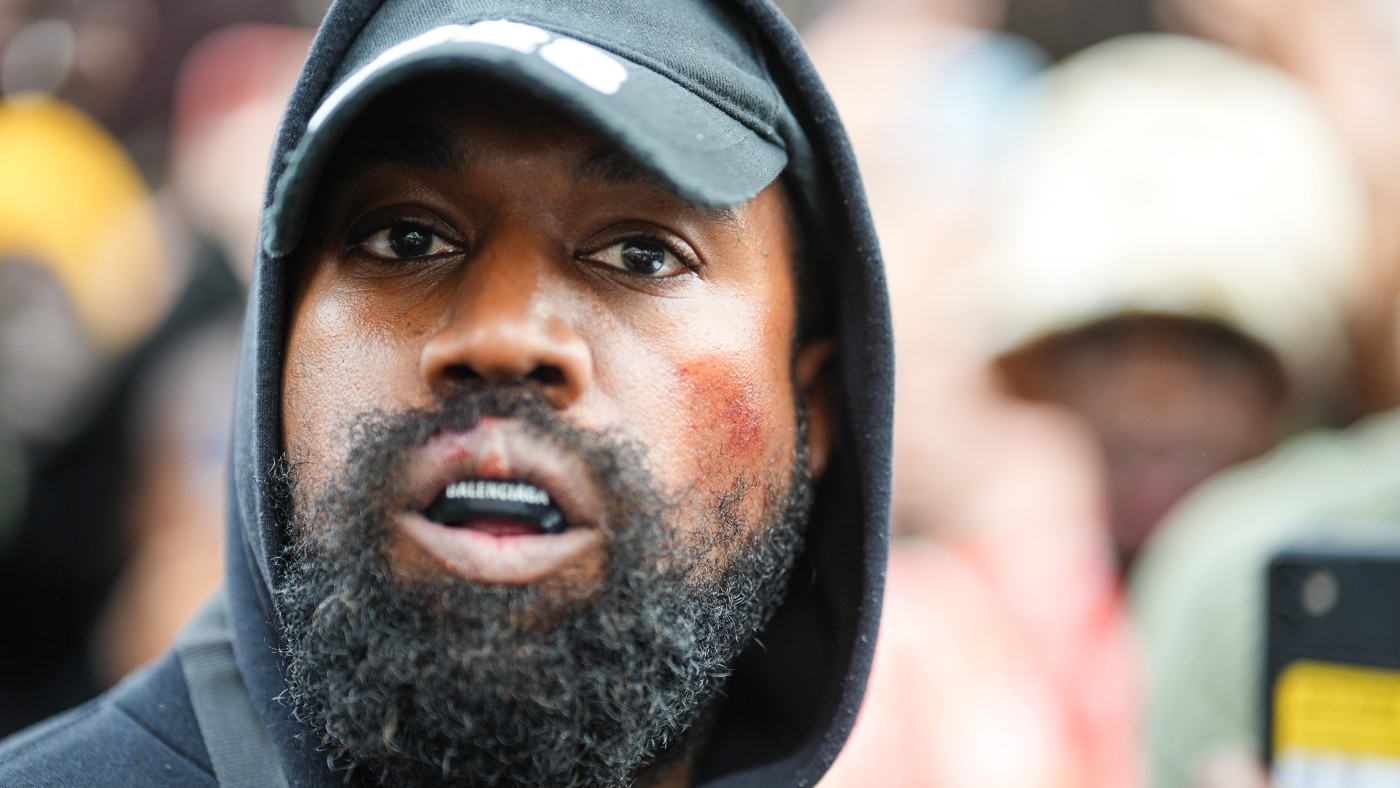Kanye West, Parler and the rise of right-wing social media
Controversial rapper agrees deal to buy Twitter-style platform as conservatives ‘flock’ to ‘free speech’ apps

A free daily email with the biggest news stories of the day – and the best features from TheWeek.com
You are now subscribed
Your newsletter sign-up was successful
Kanye West is to buy “uncancellable” social-media app Parler for an undisclosed amount in a deal “that will change the way the world thinks about free speech”, according to the platform.
In a joint statement after reaching an agreement in principle, the rapper said: “In a world where conservative opinions are considered to be controversial, we have to make sure we have the right to freely express ourselves.”
‘Distancing himself from mainstream’
West, also known as Ye, has been banned from Twitter and Instagram after posting anti-Semitic messages last week. His Instagram account was suspended after he accused fellow rapper Diddy of being controlled by Jewish people. West then tweeted that he would go “death con three on Jewish people”, which led to his Twitter account being locked.
The Week
Escape your echo chamber. Get the facts behind the news, plus analysis from multiple perspectives.

Sign up for The Week's Free Newsletters
From our morning news briefing to a weekly Good News Newsletter, get the best of The Week delivered directly to your inbox.
From our morning news briefing to a weekly Good News Newsletter, get the best of The Week delivered directly to your inbox.
Announcing the Parler deal in a tweet on Monday, the Nashville-based company’s CEO George Farmer said that West “will never have to fear being removed from social media again”.
The musician is making a “new home for himself in the right-wing mediasphere” after “further and further distancing himself from the mainstream that once so worshipped him”, said Slate. He has “lost a lot of collaborators thanks to his public misbehaviour”, but conservatives “have embraced him”.
“And now, right-wing social media executives are happy to take his money and share in what remains of his glow,” the site added.
‘Bastions of free speech’
The “far-right is flocking” to alternative social-media apps such as Parler, which is styled as a “free speech” alternative to Twitter, said Forbes. Other popular platforms include Gab, also billed as a “right-wing alternative to Twitter”; Gettr, a platform “founded on the principles of free speech”; and Rumble, a conservative variation of YouTube.
A free daily email with the biggest news stories of the day – and the best features from TheWeek.com
Since launching in 2018, Parler has amassed more than 250,000 monthly active users on its iOS and Android apps, according to industry data shared with TechCrunch. The platform claims to have 15m registered users in total.
Parler was founded by John Matze and Rebekah Mercer, the daughter of Breitbart founder Robert Mercer, and “has raised about $56m across private funding rounds”, the tech news site reported.
But despite attracting some big-name backers, “right-wing platforms are one-trick ponies”, argued Darren Linvill, lead researcher at the Media Forensics Hub at South Carolina’s Clemson University.
Building a robust social media platform requires “multiple perspectives so you can have lots of different conversations happening to bring in lots of different kinds of people”, Linvill told The Washington Post. But right-wing platforms are “only going to, by their nature, appeal to the type of person they are branded to appeal to, and there’s only so many people in that world”.
An analysis by the paper at the start of this year found that, following a surge in the wake of the Capitol riots on 6 January 2021, audiences on far-right platforms had “stagnated”.
Such apps are “most appealing to what’s ultimately a niche crowd”, said MSNBC’s political columnist Zeeshan Aleem. “When you’re a political junkie on social media, it can be easy to experience the illusion that everyone else is too,” he continued. But in reality, these junkies “make up a small part of social media networks”.
The limited growth potential for right-wing apps such as Parler underscores “how getting kicked off the major mainstream apps for violating rules is a punishment with real consequences”.
And these consequences may include “derailing the growth trajectory of major right-wing figures and their ability to win over a general audience”, Aleem added, amid ongoing speculation that West may run for the US presidency in 2024.
-
 Why are election experts taking Trump’s midterm threats seriously?
Why are election experts taking Trump’s midterm threats seriously?IN THE SPOTLIGHT As the president muses about polling place deployments and a centralized electoral system aimed at one-party control, lawmakers are taking this administration at its word
-
 ‘Restaurateurs have become millionaires’
‘Restaurateurs have become millionaires’Instant Opinion Opinion, comment and editorials of the day
-
 Earth is rapidly approaching a ‘hothouse’ trajectory of warming
Earth is rapidly approaching a ‘hothouse’ trajectory of warmingThe explainer It may become impossible to fix
-
 Why X could face UK ban over Grok deepfake nudes
Why X could face UK ban over Grok deepfake nudesThe Explainer Ofcom is investigating whether Elon Musk’s AI chatbot breached Online Safety Act
-
 Facebook: Sarah Wynn-Williams' shocking exposé
Facebook: Sarah Wynn-Williams' shocking exposéTalking Point Former executive's tell-all memoir of life behind the scenes at Meta 'makes for damning reading'
-
 Bianca Censori: beyond the nudity
Bianca Censori: beyond the nudityTalking Point At the Grammys, Censori had 'nowhere to hide' – but is she ok with it?
-
 FKA Twigs and Jeremy Allen White – the tale of two Calvin Klein ads
FKA Twigs and Jeremy Allen White – the tale of two Calvin Klein adsTalking Point Her advert was banned by the advertising watchdog while his caused a 'breathless response' after going viral
-
 The Christmas round robin: return of the much-mocked missive?
The Christmas round robin: return of the much-mocked missive?Talking Point Young people looking to 'precious tradition' that 'predates social media and exceeds it'
-
 Nasty noughties: a cultural reckoning?
Nasty noughties: a cultural reckoning?Talking Point Has popular culture evolved since the 'cruelty' of the early 2000s?
-
 The death of DVDs and the decline of ownership in digital age
The death of DVDs and the decline of ownership in digital ageTalking Point Physical media sales are still in freefall even as a backlash against streaming grows
-
 Huw Edwards and the question of ‘public interest’
Huw Edwards and the question of ‘public interest’Talking Point Privacy law ‘mess’ needs to be cleared up, not by judges, but by Parliament